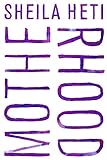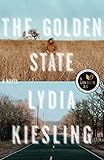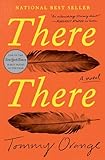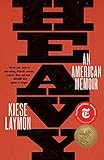This year made things of us all. I was reminded of a part of myself I wish did not exist: what I dub the fainting goat inside of me. The fainting goat seizes when it panics, as if thinking of the plan, not realizing that seizing, pausing in place for a period of time, is not a great survival strategy. And yet I have this goat in me. When things become overwhelming, I slip into a kind of fugue state during which on a psychic level I am chanting somewhere, think, Gross, think, Gross, how do we get out of this? I suspect many of us slipped in and out of fugue states in order to cope with this year, but of course survival depends on getting out of the fugue state to fight the powers that be.
I also spent the year finishing my own book about motherhood, a topic around which I am profoundly ambivalent. If you are ambivalent about something as large as becoming a parent, there is the idea that reading hundreds of books about it will help. For me, it did not help. It only deepened my ambivalence and made me realize that the grandness of the question would make any thinking person torn. I suspect that only people of great faith can take on new parenthood during these times.





I read every book on motherhood and the report is what you might imagine; most books on the topic are terrible, and because you should avoid them, I will not even bother to list the 40+ of them I read this year. However, some are terrific. Kate Zambreno’s Book of Mutter is a love letter full of conflict both to her own mother and herself as a new mother. Being Here Is Everything by Marie Darrieussecq is a beautiful portrait of the iconic modernist painter Paula Modersohn-Becker whose work epitomized maternal ambivalence. Mothers by Rachel Zucker examines how to become a mother without becoming your own mother. And Now We Have Everything by Meaghan O’Connell is one of those books I suspect is terrific for women who actually do become mothers. As is Like a Mother: A Feminist Journey Through the Science and Culture of Pregnancy by Angela Garbes, which is a terrific book and the kind of book you should buy every woman you know who is pregnant. It’s a perfect balance of the personal and the political, and it’s the only book about becoming a mother that didn’t make me feel like motherhood isn’t for me. And I read two novels about motherhood: Sheila Heti’s Motherhood, which is a book that perfectly encapsulates how I feel and is a gift to all ambivalent women everywhere, and Lydia Kiesling’s The Golden State, which chronicles actual motherhood in its glory and plainness, connecting women through time, and makes me feel a sense of anticipatory loss at not entering into that space.
And of course reading about the history of motherhood was depressing in the ways that reading any history related to women is, but particularly how it dovetailed with the news this year. Sexual abuse going unpunished, white campus rapists going free, white predators taking and maintaining their place on the supreme court and presidency and in every nook and cranny of power-holding positions. Abortion rights on the brink of being taken back from us. Young black women going to prison for 51 years for killing their abuser in self defense—a sentence no white woman would face. Mothers continuing to do the bulk of the work while the gender pay gap persists, without child support, and often with retribution when they do return to work. Black women three to four times as likely to die from maternal causes as white women. The list is too long to list. Between systemic racism and misogyny, what women, and particularly women of color, have endured and continue to endure is unbearable. It is important to realize and celebrate the gains we’ve made, but sobering to realize how far we have to go.




Finally after all of the less-than-cheery wading through historical research I managed to find some time to read for pleasure. I waited until Rachel Cusk’s trilogy was finished so I could binge read them in a hotel in Greece. It is so worth waiting to read books like this all at once. I should add that while Outline, Transit, and Kudos are clearly brilliant works, her book on motherhood, A Life’s Work, remains my favorite.







I also read the following books which I recommend in spades: R.O. Kwon’s The Incendiaries (God how I admire her spare sentences; no word seems misplaced in this jewel of a book), The Far Away Brothers by Lauren Markham (nonfiction that reads like a novel about twin brothers that escape the violence of El Salvador), The Marginalized Majority: Claiming Our Power in a Post-Truth America by Onnesha Roychoudhuri (this book is so accessible and important and did not get the press it deserves), Strange Weather in Tokyo by Hiromi Kawakami (I wanted to live in this book of sake drinking, mushroom foraging, and complicated platonic-ish love), There There by Tommy Orange (a polyphonic novel about contemporary Native-American life and the history it holds), Heavy by Kiese Laymon (another complicated love letter to a mother and a searing look at the ugly truths of America), and The Friend by Sigrid Nunez (I loved this book!).

Of all the books I read in 2018, my favorite was Alexander Chee’s How to Write an Autobiographical Novel. Just read it. For me it came at a fortuitous time. In my frozen fright-filled state, it was like a wise and benevolent voice that gently tapped me on the shoulder and said, unfreeze my child, there are better things you can do than faint. It made me realize that once I came out of this period of fugue, I would return to the work that my little goat self came to do: read, write, speak, act up—all as my own way of mothering.
More from A Year in Reading 2018
Do you love Year in Reading and the amazing books and arts content that The Millions produces year round? We are asking readers for support to ensure that The Millions can stay vibrant for years to come. Please click here to learn about several simple ways you can support The Millions now.
Don’t miss: A Year in Reading 2017, 2016, 2015, 2014, 2013, 2012, 2011, 2010, 2009, 2008, 2007, 2006, 2005
The post A Year in Reading: Anisse Gross appeared first on The Millions.
Source : A Year in Reading: Anisse Gross











